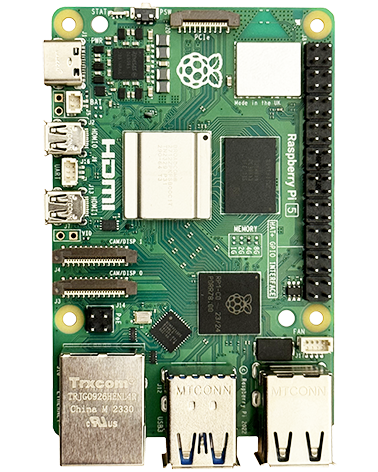Installing GTK
sudo apt-get install libgtk-3-dev
Using In Your Project
Update your makefile to use the gtk libs and cflags:
LIBS = `pkg-config --libs gtk+-3.0`
CFLAGS = `pkg-config --cflags gtk+-3.0`
Include gtk and get programming – see here.
#include <gtk/gtk.h>
Using In A NetBeans For Windows Project
Go to: Project Properties > Build > Linker > Compilation Line > Additional Options > paste in this:
`pkg-config –cflags gtk+-3.0` `pkg-config –libs gtk+-3.0`
Note the single quote marks are correct and should be used as is!
Now you need to add all of the directories used by the gtk libraries – dull but necessary… Use this command:
pkg-config --cflags gtk+-3.0
Which will give you an output like this:
pkg-config --cflags gtk+-3.0
-pthread -I/usr/include/gtk-3.0 -I/usr/include/at-spi2-atk/2.0 -I/usr/include/at-spi-2.0 -I/usr/include/dbus-1.0 -I/usr/lib/arm-linux-gnueabihf/dbus-1.0/include -I/usr/include/gtk-3.0 -I/usr/include/gio-unix-2.0/ -I/usr/include/cairo -I/usr/include/pango-1.0 -I/usr/include/harfbuzz -I/usr/include/pango-1.0 -I/usr/include/atk-1.0 -I/usr/include/cairo -I/usr/include/pixman-1 -I/usr/include/freetype2 -I/usr/include/libpng12 -I/usr/include/gdk-pixbuf-2.0 -I/usr/include/libpng12 -I/usr/include/glib-2.0 -I/usr/lib/arm-linux-gnueabihf/glib-2.0/include
Convert it into a list of directories and delete any duplicates, so you end up with something like this:
/usr/include/gtk-3.0
/usr/include/at-spi2-atk/2.0
/usr/include/at-spi-2.0
/usr/include/dbus-1.0
/usr/lib/arm-linux-gnueabihf/dbus-1.0/include
/usr/include/gio-unix-2.0/
/usr/include/cairo
/usr/include/pango-1.0
/usr/include/harfbuzz
/usr/include/atk-1.0
/usr/include/pixman-1
/usr/include/freetype2
/usr/include/libpng12
/usr/include/gdk-pixbuf-2.0
/usr/include/glib-2.0
/usr/lib/arm-linux-gnueabihf/glib-2.0/include
Go to: Project Properties > Build > C++ Compiler > General > Include Directories > and add in each one. For the first one you can paste the line in even though an open file dialog is shown but you may need to go back and edit it to make it right. For subsequent ones you can simply 'duplicate' and then 'edit' to add each as a new entry.
This it, add this to your project source file and off you go.
#include <gtk/gtk.h>


4 years ago
Hi Jorgen,
I hope (for your sake) this means you got things to work properly in your environment!
I am still hoping to have Gtk 4.0 installed on the Raspberry Pi, Raspberry OS (Debian) one of these days because I find that Gtk 3.0 has many functions that have been deprecated which is rather discouraging.
Warm Regards,
Roark
4 years ago
Sorry, I had forgotten the references to the libraries.
The libraries are added to the Build setting, by running
pkg-config –libs gtk+-2.0
in a terminal and copy output to the build setting.
4 years ago
I am using GEANY.
I have installed GTK 2.0 and GTK 3.0.
I have coded a small prgram using GTK functions. The program compile, build and execute on Code::Blocks, hence my code is OK.
Now, I use GEANY, since I want also to use pigpio that requires root permission, which is easily done in GEANY.
I ave followed the procedure described above for NetBeans i.e. run pkg-config –cflags gtk+-2.0 and copied the output into the compile and build lines in GEANY “Build”->”Set Build Commands”->”Build”.
The program compiles fine, but the building fails stating:
GTK_ex_1.c:(.text+0x138): undefined reference to `gtk_init’
for lots og GTK functions.
Please, what do I miss to do?
Regards,
Jorgen Sandberg
4 years ago
In the book “C & GUI Programming” is stated that this should work:
gcc `pkg-config –cflags –libs gtk+-2.0` gtktest.c -o gtktest
When I do that using GEANY I get the error message: “No such file or directory” referring to the text within the ‘ marks.
Please, has anyone got GTK 2 or GTK 3 to run using C and GEANY? Please, share your experience with me.
5 years ago
I first got started using Simon Long’s “C & GUI Programming” book which referenced Gtk 2.0 and provided a command to install that is similar to the above (sudo apt-get install libgtk-2-dev).
I was able to use the above instead (sudo apt-get install libgtk-3-dev) and it worked great. The only struggle was the abundance of library functions that were deprecated. Still, I was able to press on, ending up with a fairly impressive application.
Now, with the release of Gtk 4.0, I hear it is currently unavailable for Debian (Raspberry Pi Os) and the following command fails:
sudo apt-get install libgtk-4-dev
When I mentioned this in the Gtk forum, I pointed out that Gtk 3.0 was supported, but I was told this is likely because Gtk 3.0 had been out for nearly a decade. It was suggested I could build my own Gtk 4 compiler using the open source code, however when I attempted to do that, I kept getting additional errors. Alternatively, it was implied I might have to wait for years for Gtk 4.0 to be offered.
Any suggestions?
Thanks in advance for any help you can provide.
Regards,
Roark